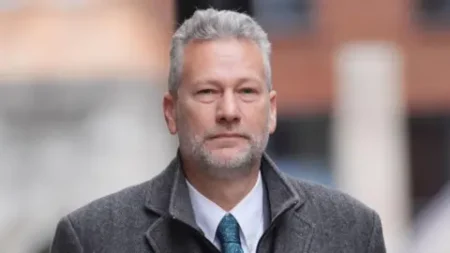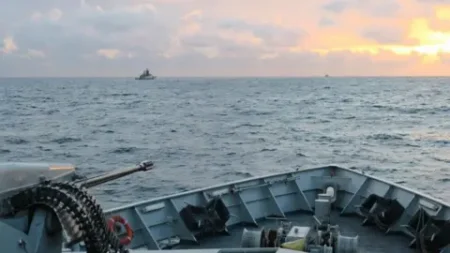In a significant development in the ongoing conflict between Israel and Hezbollah, Israeli military forces announced the killing of a top Hezbollah official, Ali Tabtai, in a targeted airstrike on the southern suburbs of Beirut. The attack occurred amid a prevailing ceasefire and marks Israel’s first military action in southern Beirut in several months. This incident has heightened tensions in an already volatile region, raising concerns about a potential escalation in hostilities.
The airstrike, which struck an apartment building in the densely populated Dahieh district of Beirut, resulted in substantial casualties, with Lebanon’s health ministry reporting at least five people killed and 28 others wounded. The attack reportedly aimed at Tabtai, identified by Israel as a veteran member of Hezbollah and the group’s chief of staff who had held several senior positions. Hezbollah acknowledged the strike but refrained from confirming his identity, labeling the attack as a violation of a “red line.”
Israel’s actions are interpreted as part of a broader strategy to dismantle Hezbollah’s military capabilities, which Israeli officials allege are being bolstered through arms smuggling and the production of lethal weapons such as explosive drones. Despite the ceasefire agreed upon in November, the Israeli government has opted to maintain its campaign against targets related to Hezbollah, citing increasing threats posed by the group, which is backed by Iran. The ongoing operations reflect Israel’s determination to prevent Hezbollah from re-establishing its power and capability to launch attacks against Israeli territories.
Israeli Prime Minister Benjamin Netanyahu stated unequivocally that under his leadership, Israel would not permit Hezbollah to regain strength, emphasizing the state’s commitment to its security. Moreover, he expressed expectations that the Lebanese government would fulfill its commitment to disarm Hezbollah, an expectation met with skepticism as Hezbollah has previously rejected discussions about its armament, contingent upon the cessation of Israeli attacks and the withdrawal of Israeli forces from Lebanon.
Lebanon’s President Joseph Aoun has condemned the Israeli strike, calling for international intervention to halt Israeli aggression and pressure Israel to withdraw from the occupied territories it holds in southern Lebanon. Aoun pointed out that the actions by Israel are breaches of the terms set to conclude a prolonged period of conflict. However, the Lebanese government has faced internal challenges in addressing Hezbollah’s arms, which complicates any diplomatic resolution to this tension-riddled issue.
The backdrop to these tensions includes the recent conflict ignited by Hezbollah’s rocket fire in response to attacks by Hamas against Israel on October 7, 2023. The Lebanese group portrayed its actions as a gesture of solidarity with Palestinians in Gaza. In this conflict, Israel has conducted extensive military operations, leading to significant casualties in Lebanon, including civilian losses. Reports indicate that around 4,000 lives have been claimed, amidst large-scale displacement affecting over 1 million residents. Conversely, Israel has acknowledged losing more than 80 soldiers and 47 civilians during the hostilities.
The U.S. government has previously imposed sanctions on Ali Tabtai, labeling him a terrorist and attributing to him a role in Hezbollah’s military operations in regions such as Syria and Yemen. Washington has put a bounty of $5 million for information leading to his capture, highlighting the U.S. stance against Hezbollah’s regional activities perceived as destabilizing. Coupled with these tactics is the growing impatience expressed toward the Lebanese authorities by the current U.S. administration, which perceives insufficient progress in addressing Hezbollah as a terrorist entity.
In summary, the recent Israeli airstrike on a Hezbollah leader not only signifies an escalation in the ongoing conflict but also underscores the complex geopolitical dynamics in the region, characterized by entangled interests, long-standing rivalries, and the varying responses from the international community. As the situation evolves, the focus remains on the stability of Lebanon, the effectiveness of Hezbollah’s stronghold, and the broader implications for regional security in the Middle East.











